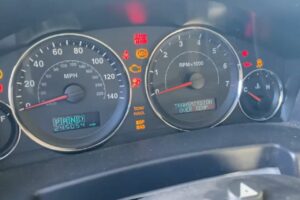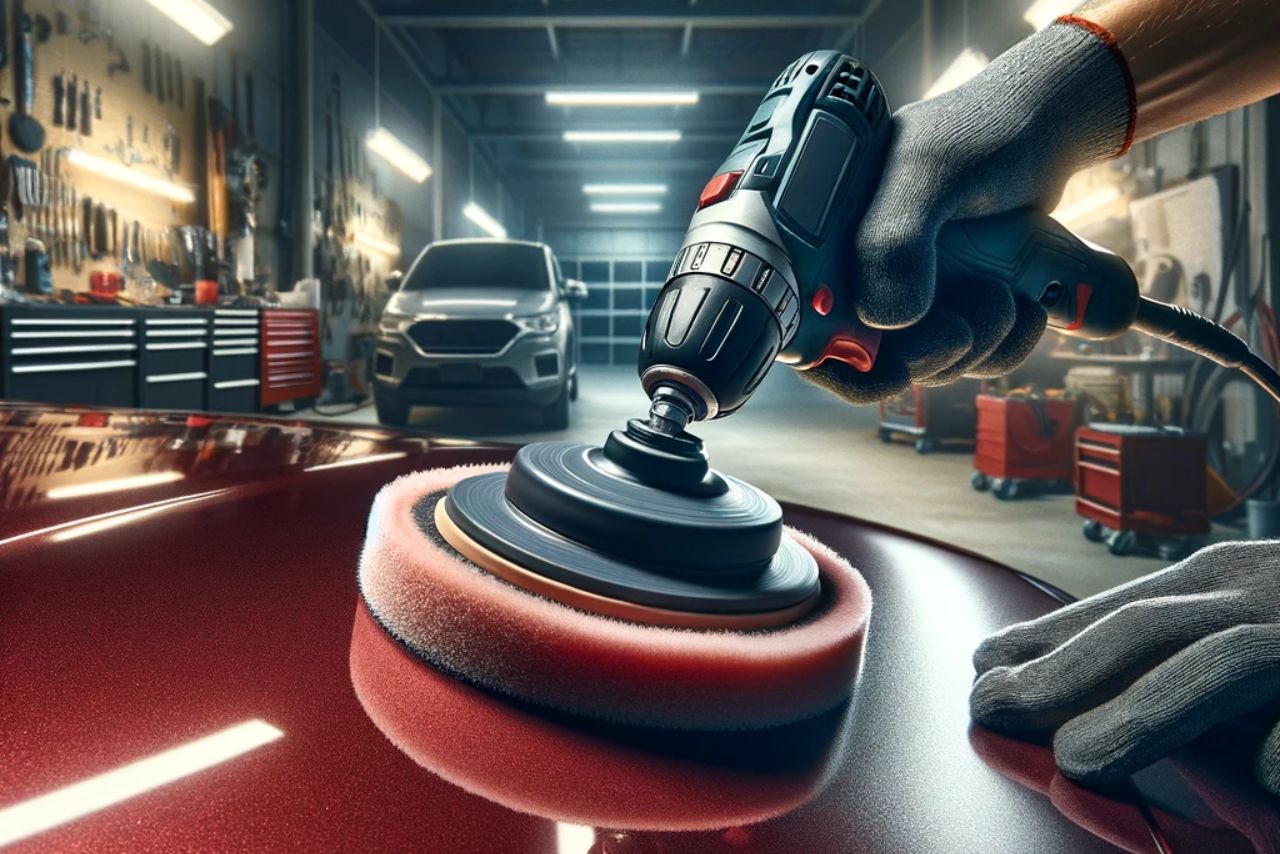The Toyota Camry is one of the most popular mid-size sedans on the market, known for its reliability and comfortable ride.
However, some owners have reported a peculiar noise coming from their steering wheel.
This Toyota Camry Hybrid Steering Groan noise can range from a subtle squeak to an irritating rattle that occurs while turning or driving on uneven roads.
While it may not affect the performance of the car, this noise can be quite bothersome and concerning for Camry owners.
In this article, we will explore the possible causes of Toyota Camry Steering Wheel Noise and provide solutions to help you eliminate this annoyance once and for all.
One of the primary factors contributing to steering wheel noise in Toyota Camrys is excessive wear and tear on the power steering pump. Additionally, worn out power steering belts and pulleys can also contribute to the noise issue experienced by some Camry drivers. Another significant cause of the aforementioned steering wheel noise is related to faulty ball joints or tie rod ends.
Table of contents
11 Causes Of Toyota Camry Steering Wheel Noise:
| Cause | Description |
|---|---|
| Loose or worn steering wheel bearing | The steering wheel bearing is a critical component that allows the steering wheel to rotate freely. If it becomes loose or worn, it can cause a knocking or clicking noise when you turn the wheel. |
| Worn tie rod ends | Tie rod ends are the components that connect the steering rack to the wheels. If they become worn, they can cause a knocking or clicking noise when you turn the wheel. |
| Worn ball joints | Ball joints are the components that allow the wheels to move up and down. If they become worn, they can cause a knocking or clicking noise when you go over bumps or turn the wheel. |
| Loose or damaged steering rack | The steering rack is the component that transmits the power from the steering wheel to the wheels. If it becomes loose or damaged, it can cause a knocking or clicking noise when you turn the wheel. |
| Air in the power steering system | The power steering system uses hydraulic fluid to power the steering. If air gets into the system, it can cause a knocking or clicking noise when you turn the wheel. |
| Low power steering fluid | The power steering system uses hydraulic fluid to power the steering. If the fluid level is low, it can cause a knocking or clicking noise when you turn the wheel. |
| Debris in the power steering system | The power steering system is a closed system, but debris can sometimes get in. If debris gets in, it can cause a knocking or clicking noise when you turn the wheel. |
| Worn or damaged power steering pump | The power steering pump is the component that pumps the hydraulic fluid in the power steering system. If it becomes worn or damaged, it can cause a knocking or clicking noise when you turn the wheel. |
| Faulty power steering control module | The power steering control module is the component that controls the power steering pump. If it becomes faulty, it can cause a knocking or clicking noise when you turn the wheel. |
1. Worn Suspension Components:

One of the main causes of steering wheel noise in a Toyota Camry is worn suspension components.
These components include ball joints, control arms, and tie rod ends. Over time, these parts can become loose or damaged due to wear and tear from daily use.
When this happens, they may produce a clunking or rattling sound when turning the steering wheel.
3. Low Power Steering Fluid Levels:
Another possible cause of steering wheel noise in a Toyota Camry is low power steering fluid levels.
If there isn’t enough fluid in the system, it can cause air bubbles to form which can create a whining or squealing sound when turning the wheel.
Additionally, if the power steering pump is failing or has been damaged due to lack of maintenance, it may also produce noise.
4. Loose Steering Column:

If you notice that the steering wheel in your Toyota Camry has become loose or is making strange noises, it could be a sign of a problem with the steering column.
The steering column is responsible for connecting the steering wheel to the rest of the car’s steering system, and any issues with it can affect your ability to control your vehicle.
One possible cause of a loose or noisy steering column in a Toyota Camry is worn-out components.
Over time, parts like bearings and bushings can wear down due to normal use and age. This can lead to excess play in the steering wheel or strange noises when turning.
Another potential culprit behind a problematic Toyota Camry steering column is damage caused by an accident.
Even minor collisions can cause damage to critical components like the tie rods and ball joints that connect the wheels to the rest of the system.
If these parts are damaged, they may need to be replaced in order to restore proper function and prevent further damage from occurring.
5. Check for Loose Bolts:
One of the possible causes of steering wheel noise in a Toyota Camry could be loose bolts.
Loose bolts can cause rattling sounds when driving, especially on bumpy roads or during turns. Checking for loose bolts is a simple process that can help diagnose and solve the problem.
To check for loose bolts, start by visually inspecting the steering column and related components.
Look for any obvious signs of damage or wear, such as cracked or broken parts. Then, use a wrench to tighten all visible nuts and bolts in the vicinity of the steering column.
6. Faulty Power Steering Pump:
A faulty power steering pump can cause a number of issues with your Toyota Camry, including steering wheel noise.
If you notice a whining or squealing sound coming from your car’s power steering system when turning the wheel, it could be a sign that the pump is failing.
Other symptoms of a bad power steering pump may include difficulty turning the wheel, leaking fluid, and increased resistance when driving at low speeds.
To fix a faulty power steering pump in your Toyota Camry, you may need to replace the entire unit or simply repair certain components.
7. Worn Out Tie Rod Ends:
If you own a Toyota Camry and hear a clunking or knocking sound when turning your steering wheel, there’s a good chance that your tie rod ends are worn out.
These components are responsible for connecting your steering rack to the wheels, allowing you to control the direction of your vehicle.
Over time, they can become loose or damaged due to regular wear and tear on the road.
When tie rod ends start to wear down, it can be difficult to maintain proper alignment in your Toyota Camry. You may notice that your car pulls to one side or the other while driving, or that your tires wear unevenly over time.
Additionally, worn-out tie rod ends can cause excessive play in your steering system, making it more difficult to control your vehicle accurately.
To avoid further damage and improve the safety of your Toyota Camry on the road, it’s important to replace worn-out tie rod ends as soon as possible.
8. Inspect the Rubber Boots:
Inspecting the rubber boots is a key step in identifying and addressing steering wheel noise in a Toyota Camry.
The rubber boots cover the steering rack and protect it from dirt and debris, which can cause wear and tear on the components inside.
Over time, these boots can become damaged or worn out, allowing dirt and debris to enter the system and causing noise when turning.
To inspect the rubber boots, start by visually examining them for any signs of damage such as cracks or tears.
Check that they are securely fastened to the steering rack with no loose or missing clamps. If there are any visible issues, replacement of the boots may be necessary.
In addition to visual inspection, it’s also important to feel for any resistance or play in the steering while turning.
If there is excessive resistance or looseness felt in the wheel during turning, this could be an indication that there is an issue with one of the components within the steering system which may require further investigation beyond just inspecting the rubber boots.
9. Malfunctioning Steering Rack:
A malfunctioning steering rack is a common issue that can lead to various problems, including steering wheel noise in Toyota Camry models.
A steering rack is an essential component of the car’s steering system responsible for converting the rotational motion of the steering wheel into a linear motion that causes the wheels to turn.
When this part malfunctions, it can cause a lot of issues such as difficulty turning, improper alignment, and unusual noises.
If you hear any strange noises when you turn your Toyota Camry’s steering wheel, it could be due to a malfunctioning rack.
These sounds may include whining or grinding sounds, which are typically caused by worn-out or damaged gears in the rack or pinion assembly.
Other symptoms of a faulty rack include uneven tire wear and vibrations felt through the steering wheel while driving.
10. Check for leaks and play:
If you’re experiencing a strange noise coming from your Toyota Camry’s steering wheel, it’s important to address the issue as soon as possible.
One potential cause of this noise could be a leak in the power steering system.
Be sure to check for any visible leakage or low fluid levels in the power steering reservoir. This can often be resolved by replacing any damaged hoses or seals and refilling the fluid.
11. Damaged Ball Joints:
Another factor that may contribute to steering wheel noise is worn out ball joints or tie rod ends.
These components help connect the wheels and suspension to the steering system, allowing for smooth handling and control.
Over time, they can wear down and cause clunking or popping noises when turning or driving over bumps in the road.
If left unchecked, these issues can lead to further damage and ultimately compromise driving safety.
Lastly, worn out bearings on the front wheels could also be responsible for causing steering wheel noise in a Toyota Camry.
As bearings wear down over time they will begin to make grinding noises as you turn your vehicle’s wheels left or right while driving at slow speeds.
This could be an indication that you need new bearings installed on your car before any further damage occurs to other parts within its systems such as brakes and suspension components!
How to Diagnose Steering Wheel Noise in a Toyota Camry?
One of the most common causes of steering wheel noise in a Toyota Camry is worn suspension components.
When these parts wear out, they can cause clunking or clicking sounds when you turn the wheel.
To diagnose this issue, start by inspecting your car’s suspension system for any signs of damage or wear.
Another potential culprit behind steering wheel noise in a Toyota Camry is low power steering fluid levels. If your car’s power steering pump isn’t getting enough fluid to operate properly, it can make whining or groaning noises when you turn the wheel. Check your car’s owner manual to find out how to check and refill the power steering fluid.
If neither worn suspension components nor low power steering fluid are causing your Toyota Camry’s steering wheel noise, then there may be an issue with the ball joints.
These small parts connect the control arms to the wheels and allow them to pivot as you steer.
If they become damaged or worn out, they can produce knocking sounds when turning corners or driving over bumps on uneven roads.
How to Fix Steering Wheel Noise in a Toyota Camry?
The steering wheel is one of the most important components of any vehicle, and when it starts to make noise, it can be irritating and even dangerous.
If you’re driving a Toyota Camry and experiencing steering wheel noise, there are several things you can do to fix the problem.
Fix the Loose or Worn Power Steering Belt:
One possible cause of steering wheel noise in a Toyota Camry is a loose or worn power steering belt. To fix this issue, simply tighten or replace the belt.
Fix the Low Power Steering Fluid Levels:
Another possible cause of steering wheel noise in a Toyota Camry is low power steering fluid levels.
In this case, all you need to do is add more fluid according to your car’s owner manual instructions for your specific model year.
Lastly, worn-out tie rod ends or ball joints may also be the reason behind your Toyota Camry’s noisy steering wheel. In such cases, replacement will typically solve the problem.
Fix the Worn Suspension Components:
One of the main causes of steering wheel noise in a Toyota Camry is worn suspension components.
These include ball joints, tie rod ends, and control arm bushings.
If any of these parts are worn out or damaged, they can cause vibrations and noises when turning the steering wheel.
To fix this issue, you will need to replace the worn suspension components with new ones.
This can be done by a professional mechanic or by yourself if you have experience working on cars.
It’s important to make sure that all parts are properly installed and tightened to prevent any further issues down the road.
Toyota Camry Steering Wheel Hard to Turn:

Worn Suspension Components:
One of the common reasons why a Toyota Camry’s steering wheel becomes hard to turn is due to worn suspension components.
The suspension system in your vehicle helps absorb shocks and vibrations while driving, but over time, the parts can wear out and cause problems with handling.
If you notice that your steering wheel feels stiff or difficult to turn, it could be a sign that one or more of your suspension components need replacing.
Low Power Steering Fluid Levels:
Another possible reason for a hard-to-turn steering wheel in a Toyota Camry is low power steering fluid levels.
Power steering fluid helps lubricate and cool down the power steering pump, which makes turning the wheels easier.
Without enough fluid, the pump can fail or struggle to function properly, leading to difficulty turning the wheels.
Checking your car’s power steering fluid level regularly can help prevent this issue from occurring.
Recently Installed New Tires:
Lastly, if you have recently installed new tires on your Toyota Camry and are experiencing difficulty turning the wheel afterward, it may be due to an alignment problem.
Misaligned tires can cause uneven wear on them and make it harder for you to steer straight ahead while driving.
Having an alignment check done by a professional mechanic can help ensure that all four of your tires are correctly aligned and reduce any strain on your vehicle’s suspension system as well as making sure they last longer than usual without wearing out too quickly.
Conclusion and final thoughts 💭
Steering wheel noise in a Toyota Camry can be caused by several factors such as worn suspension components, low power steering fluid levels or damaged power steering pumps.
It is important to diagnose the root cause of the problem before attempting any repairs.
To diagnose steering wheel noise in a Toyota Camry, start by checking the power steering fluid level and inspecting the suspension components for wear and tear.
If these are not causing the issue, it may be necessary to take your vehicle to a mechanic who specializes in Toyota vehicles.
Fixing steering wheel noise in a Toyota Camry depends on what is causing the problem.
Replacing worn suspension components or topping up low power steering fluid levels are relatively simple fixes that can be done at home.
However, if it’s something more serious like a damaged power steering pump, you’ll need professional help to fix it.
Latest Posts:
- Can WD-40 Remove Scratches on Cars? (Hint: Yes, but…)
- Can You Use a Drill to Polish Your Car? (We Tried it Out!)
- Should You Cover Car Scratches With Stickers? (REVEALED!)
- Buick Service Stabilitrak: (Causes & 100% Guaranteed Fix!)
- Common Holden Trax Problems (Causes & 100% Proven Fixes!)
- Jeep Commander Transmission Over Temp: (Guaranteed Fix!)











Leave a Reply